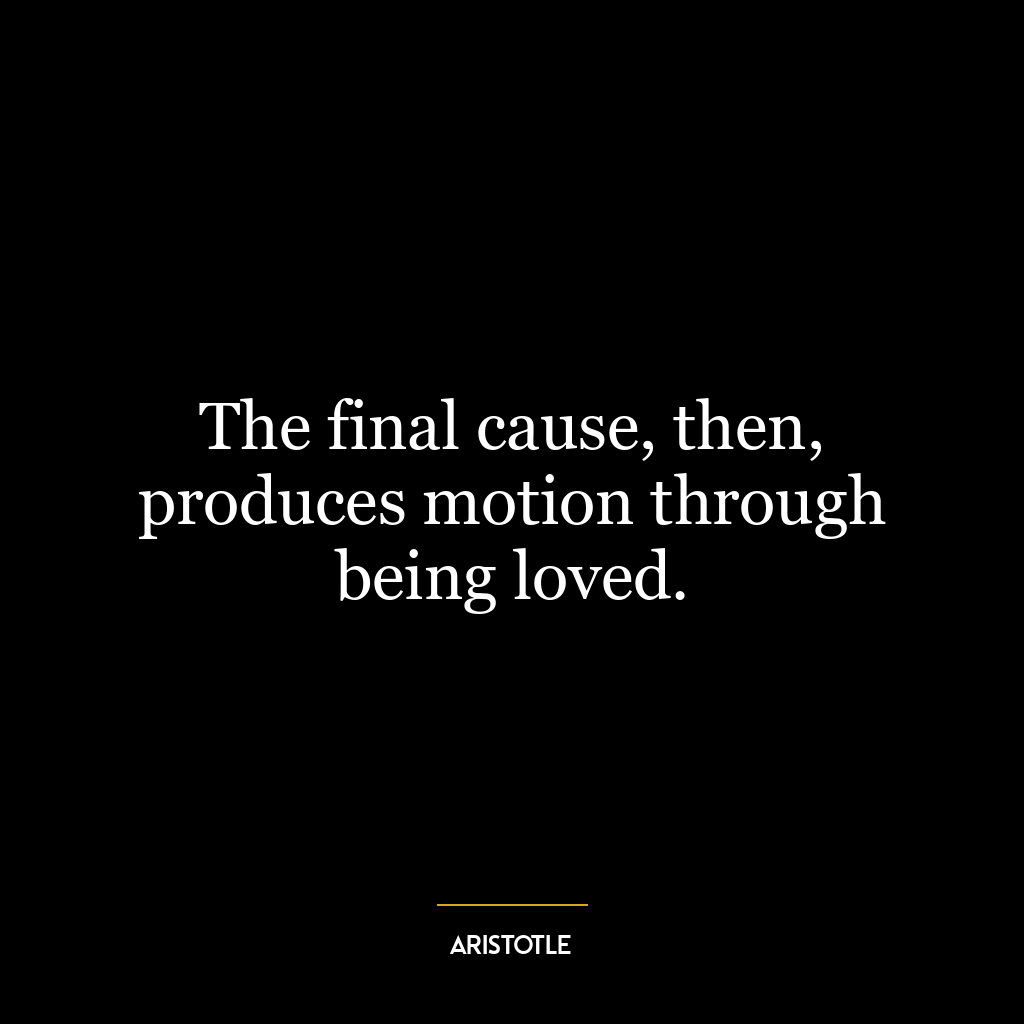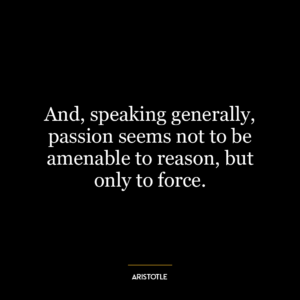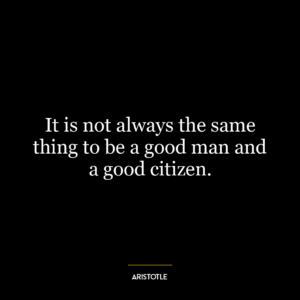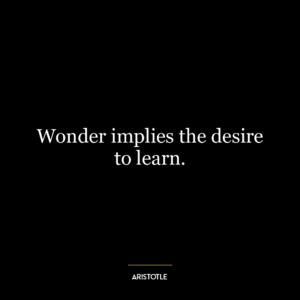“The final cause, then, produces motion through being loved” is a profound statement that emphasizes the power of desire or love in driving action or change. In this context, the “final cause” refers to the ultimate purpose or goal of a thing or action. It suggests that the end goal or purpose is what motivates or moves us to act. The concept of love here doesn’t necessarily mean romantic love, but rather a deep desire or passion for that end goal.
This statement implies that we are moved to action not by the process or steps towards the goal itself, but by our love or desire for the final result. When we deeply desire or love the end result, we become motivated to take the necessary steps to achieve it.
In today’s world, this concept can be applied in various contexts, from personal development to business strategies. For instance, in personal development, one might set a goal to become healthier. The process to achieve this – regular exercise, a balanced diet, sufficient sleep – might be challenging. However, the love for the final cause – a healthier, more energetic self – is what drives the individual to stick to the process.
In the business world, a company might set a goal to become the market leader in its industry. The steps to achieve this might involve rigorous research, aggressive marketing, and continuous innovation. These steps may be tough and demanding, but the love or desire for the final cause – being the market leader – is what drives the company to persist.
In summary, the quote emphasizes the power of desire or love for the end goal in driving action or change. It suggests that if we deeply desire or love the end result, we become motivated to overcome challenges and take the necessary steps to achieve it.















